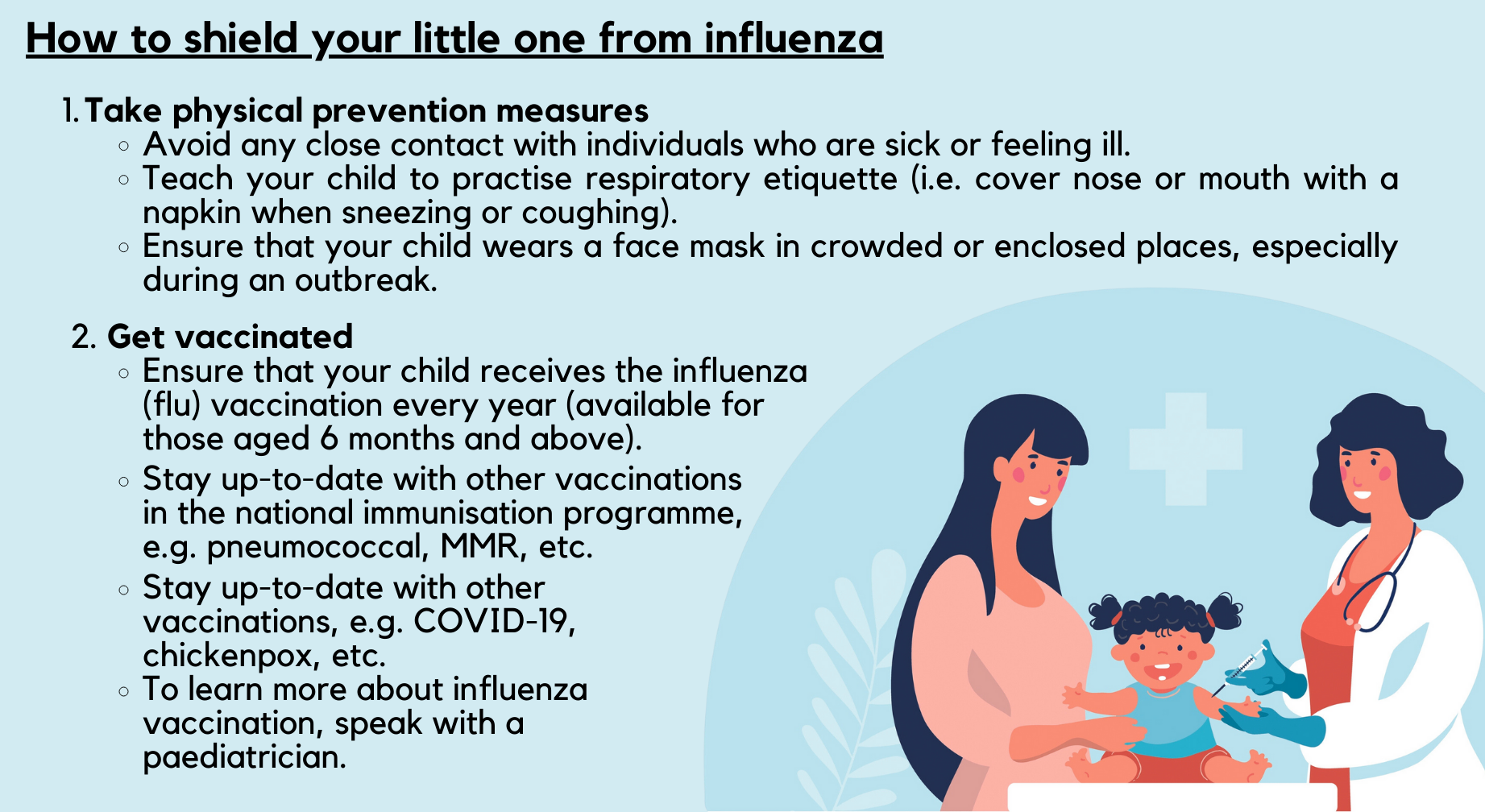Influenza infections (flu) in children are often mild, and parents tend to dismiss it as a minor illness. But the flu is not as benign as you may think. It can lead to devastating complications that affect more than just the respiratory system.
Introduction to influenza
Influenza is a contagious viral infection that affects the respiratory system. It is commonly spread through close contact with an infected individual (via respiratory droplets from coughing, sneezing, etc.).
Common symptoms in children include fever, coughing, headache, sore throat, and vomiting. In some cases, children can develop severe complications that affect organ systems other than the lungs.
Influenza and the body’s organ systems
Influenza and the heart
Influenza infections can affect blood pressure, heart rate, and heart function. Although this is mainly problematic for older people with heart conditions, in rare cases it may affect children, especially those who have congenital or chronic heart conditions.
There have been reports of influenza directly infecting the heart muscles and causing inflammation (myocarditis).
Myocarditis can lead to other complications like:
- Enlargement of the heart (dilated cardiomyopathy)
- Heart failure
- Abnormal heart rhythms
Influenza and the brain
Influenza infections can also affect the brain and cause many complications. These often have high fatality rates, and for those who survive these complications, there is also a high chance of developing neurological disabilities. Here are some potential complications of influenza on the brain:
- Influenza-Associated Encephalopathy (IAE). Damage to the brain that can cause seizures, comas, or even death. Relative to adults, encephalopathy is more common in children between the ages of 6-18 months.
- Direct infection of the brain which causes inflammation. This can lead to brain damage, bleeding in the brain, and the destruction of the nerves.
- Guillain-Barré Syndrome. A disorder where the body’s immune system attacks itself, which can affect the nerves in our body to cause muscle weakness and paralysis.
Influenza and the respiratory system
The respiratory system is the primary target for influenza viruses. This can cause various complications such as:
- Infection in the lungs where the tiny air sacs (alveoli) become inflamed. This commonly occurs in young children, the elderly, and pregnant women. Pneumonia can affect one or both lungs.
- Inflammation and irritation in the air passages of the lungs (bronchi). In severe cases, this can lead to the constriction of the blood vessels in the lungs, which can increase blood pressure.
- Inflammation of the sinuses, which can cause nasal congestion, pain near the eyes, severe headache, difficulty breathing, reduced sense of smell or taste, and neck stiffness.

Influenza is a common infection across all ages. Despite the majority of cases being mild, it is important for parents to recognise that young children are one of the high-risk groups for developing severe complications. As such, parents should understand these complications and strive to prevent influenza infections in their little ones. As parents, we are in charge of our child’s health. Therefore, it is important to consult with a doctor about influenza in children, the possible complications, and take the necessary steps to ensure your child’s health.





Comments